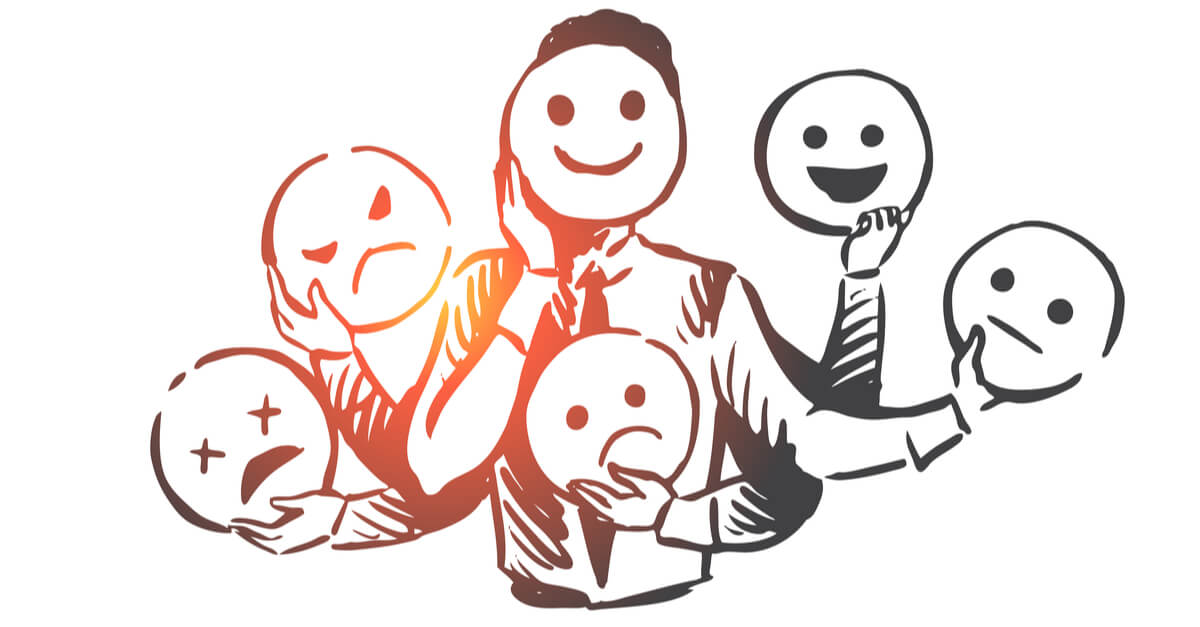Certainly, more than once you have confused an emotion with a feeling because, in practice, we experience both phenomena at the same time and are easy to confuse, however, it is very important to know what the differences between emotions and feelings are. , because the way they are managed is different and the needs they generate are not the same.
In this article we will briefly comment on the 3 main differences between emotions and feelings, the goal is that you know how to differentiate them to achieve greater emotional intelligence, be more thoughtful and avoid regrets.
- Can emotions and feelings lead us to do things that are the fruit of?Heat? At the moment.
- But if we strive to identify and differentiate them.
- It will be easier to change them (Goleman.
- 1996).
While emotions come mainly from the limbic system and the most primitive part of the brain, feelings belong to the frontal lobe, i. e. feelings are the result of abstract thinking, while emotions are innate and genetically determined as a result of evolution.
Similarly, even if it sounds strange, there are a finite or “maximum” number of emotions that we can have as human animals, but there is no maximum of feelings.
In fact, feelings (as we will see below) are defined verbally while emotions are defined psychophysiologically, feelings originate from the brain interpretation we make of events and sensations, while emotions originate from the response of the sympathetic and parasympathetic nervous system. .
“While emotions originate mainly in the limbic system and the most primitive part of the brain, feelings belong to the frontal lobe. “
Emotions are characterized mainly by the fact that they are very immediate; are the body’s alarm and survival system. Once we understand what happened and why we feel one way or another, we talk about feelings, not emotions.
To have a feeling you have to think about what happened (value emotion), think about your behavior and thus start developing it psychologically.
As emotions are born and die quickly, our body has another mechanism of evaluation and motivation: feelings. The feeling would be? Emoción. De fact, one of the main differences between emotions and feelings is that feeling develops little by little, can change and change and is present for days, weeks, months and even years.
First of all, if we understand that emotions are the main alarm and motivation system with which we were born, we can understand that they will be very intense and powerful.
Fundamental and universal emotions are: joy, anger, fear, surprise and sadness; they are very intense and always push us to act or stop. In this sense, if we further refine the ranking, the surprise would be a neutral emotion whose function is to “be alert and very aware of what is going to happen”.
If you watch the movie? Inside Out? Or “Fun Mind”, you will see how emotions always encourage us to “do something” or “stop doing”. For example, sadness leads you to distance yourself from others, to isolate yourself and to connect with the suffering you have, however, feelings are much more varied and slow and lead us to think about what we can do to make us uncomfortable.
At this point, it is necessary to emphasize that the handling of unpleasant emotions is done by techniques of deactivation and redirection of attention. On the other hand, the management of feelings is carried out through corrective sentimental experiences, socratic dialogue and guided reflection. Therefore, rapid deactivation and relaxation techniques can help.
“Feelings are much more varied and slower and lead us to think about what we can do best to stop feeling uncomfortable or unpleasant. “
Finally, we can understand that, because there are differences between emotions and feelings, the way we manage these experiences is different, while emotions require a moment of disconnection (for example, to avoid increasing anger and losing control), feelings must be heard and redirected (what happens to me?What can I do to improve my situation?).
In any case, the regulation of emotions and the reinterpretation of feelings are possible and help to have better psychological health (Bigman, Sheppes

